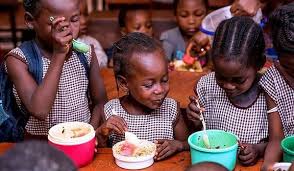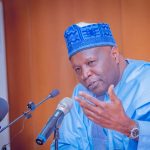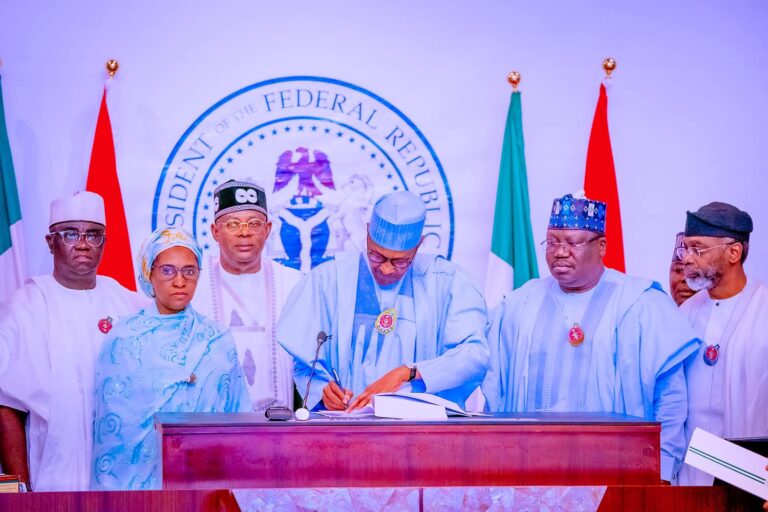Despite its numerous setbacks, the National Home Grown School Feeding Program (NHGSFP) remains a cornerstone of Nigeria’s efforts to address child malnutrition, improve educational outcomes, and support local farmers. The government’s continued investment, including the N100 billion allocated in the 2025 Appropriation Bill, highlights its determination to make the program a sustainable success. However, the program’s history of challenges raises questions about its long-term effectiveness.
Originally launched in 2005, the NHGSFP aimed to provide primary school students with nutritious meals while stimulating local agricultural production. The idea was simple yet impactful: by sourcing food locally, the program would enhance children’s health, boost school attendance, and support local farmers’ income. It also aimed to create a stable market for agricultural produce, benefiting small-scale farmers in rural areas.
However, over the years, the program has struggled with various operational difficulties. Under former President Muhammadu Buhari’s administration, the program faced widespread reports of food vendors not being paid, inconsistent food supplies, and complaints about the quality and portion sizes of the meals provided. These issues were often compounded by allegations of corruption, where funds intended for the program were misappropriated or diverted for personal gain.
One of the most significant controversies came when former Special Adviser to the President on Social Investments, Maryam Uwais, disclosed that the NHGSFP had been suspended in several states due to poor food quality, irregular supply, and delayed disbursements from state governments. In addition, reports of ghost schools—nonexistent institutions receiving program funding—further fueled concerns over the integrity and transparency of the program. A major scandal emerged in 2022 when N2.67 billion intended for school feeding during the COVID-19 lockdown was found to have been deposited into personal accounts, exacerbating fears of financial mismanagement.
In the 2023 budget, the NHGSFP’s funding was a mere fraction of the overall budget. Only about N1 billion was allocated to the program, which proved insufficient to meet the needs of the children it was designed to serve. Reports from that year revealed that many food vendors had disappeared, and meals were no longer being provided to students. As a result, school attendance, which had previously risen thanks to the meals provided, dropped dramatically once the program faltered.
Despite these challenges, the Nigerian government has reiterated its commitment to the program, setting ambitious goals for 2025. These include increasing school enrollment by 20% and boosting academic performance by 15%. Additionally, the government aims to increase local farmers’ incomes by 10%. These targets are optimistic, but their success hinges on overcoming the significant barriers that have hampered the program in the past.
The N100 billion allocated for the NHGSFP in the 2025 budget represents a substantial investment in the future of Nigeria’s children and its agricultural sector. However, experts have warned that the program’s success will depend on addressing the key challenges that have plagued it over the years. These include improving the efficiency of food distribution, ensuring that payments to vendors are made promptly, eliminating corruption, and ensuring accountability at all levels of implementation.
The government has outlined a procedure for virements (fund reallocations) in the event of any project delays or failures, ensuring that public funds are spent responsibly. Any reallocation will require the approval of the National Assembly, which underscores the importance of transparency and accountability in managing the program’s budget.
One of the most striking revelations about the NHGSFP came from a report in October 2022, when the Nassarawa State government uncovered 349 “ghost schools” that were included in the feeding program. These were schools that either did not exist or were not part of the program. The discovery raised serious concerns about the proper use of the funds allocated to the initiative and cast doubt on the integrity of the program’s administration.
Despite these setbacks, the NHGSFP continues to be a key element of Nigeria’s strategy to improve the well-being of children and enhance local agricultural productivity. The government has pledged to resolve the inefficiencies and mismanagement that have marred the program’s previous phases. However, to truly succeed, the NHGSFP must overcome the long-standing issues of corruption, logistical difficulties, and financial mismanagement. Only then will it fulfill its potential to improve education, health, and economic stability for Nigeria’s children and farmers alike.
Ultimately, the success of the NHGSFP will depend on the government’s ability to implement meaningful reforms, hold those responsible for past failures accountable, and ensure that public funds are used effectively to achieve the program’s objectives. With the 2025 budget allocation, there is hope that the program can be revitalized, but the path forward remains fraught with challenges that must be addressed if the NHGSFP is to achieve its full potential.










